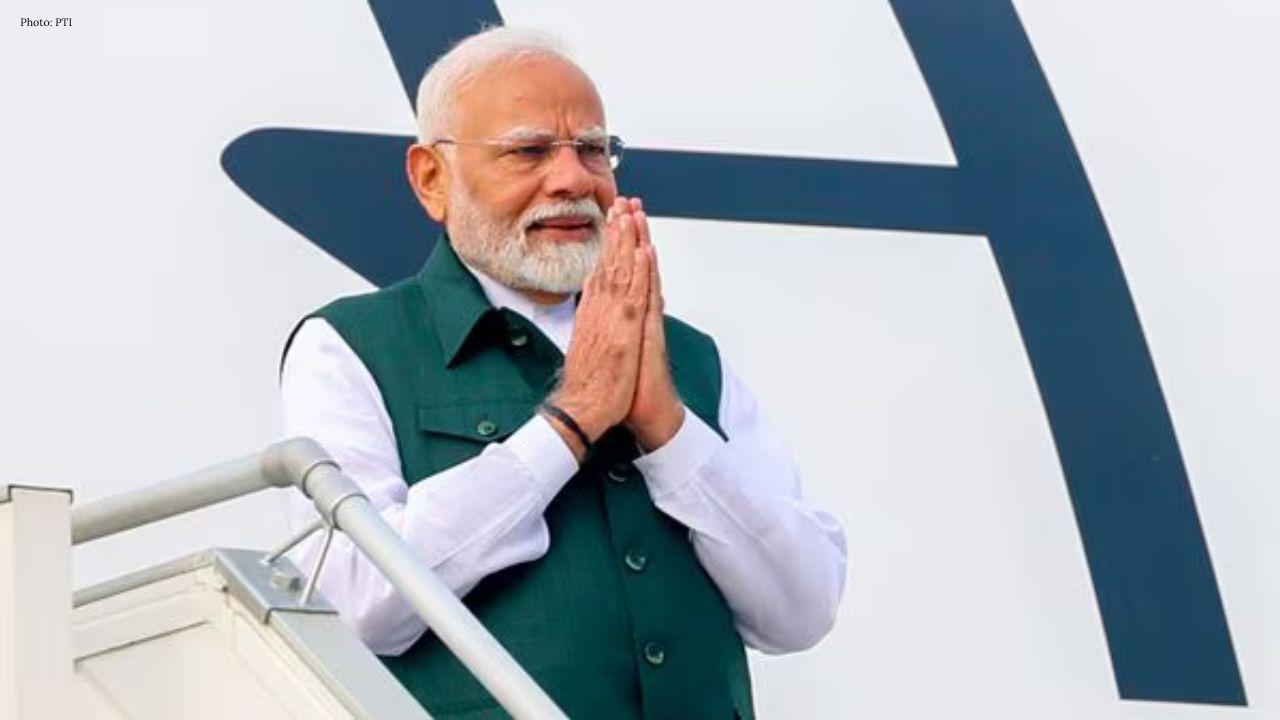You have not yet added any article to your bookmarks!

Join 10k+ people to get notified about new posts, news and tips.
Do not worry we don't spam!

Post by : Anis Farhan
The Metaverse — once a science fiction concept — is fast becoming one of the most ambitious digital undertakings of our time. Envisioned as a fully immersive, 3D virtual world where people can work, socialize, play, and even build economies, it has drawn billions in investment from global tech giants like Meta, Microsoft, Apple, Tencent, and Nvidia.
But beyond Silicon Valley and East Asia’s mega-corporations, a quieter revolution is taking shape in Southeast Asia. Countries like Singapore, Indonesia, Vietnam, Thailand, and the Philippines are increasingly being recognized as crucial players in the Metaverse movement — not just as consumers but as creators, architects, and regulators.
This region of 700 million people, with its digitally native youth population, rapidly growing middle class, and agile tech ecosystems, is shaping how the Metaverse will look, feel, and function across global societies.
Southeast Asia stands out for several compelling reasons:
Digital Adoption: According to Google’s 2024 e-Conomy SEA report, over 460 million Southeast Asians are active internet users, with a mobile-first culture fueling exponential growth in digital consumption.
Young, Tech-Savvy Population: Nearly 70% of the region’s population is under 40, making them ideal early adopters of virtual platforms, gaming, NFTs, and AR/VR technologies.
Gaming Ecosystem: Southeast Asia is one of the fastest-growing gaming markets in the world — a natural fit for Metaverse platforms built on gamification.
Creative Industries: From Filipino virtual artists to Indonesian NFT creators, the region is producing digital content that’s gaining global traction.
Entrepreneurial Spirit: The rise of startups building decentralized apps, blockchain solutions, and extended reality (XR) products puts SEA at the forefront of innovation.
Among the ASEAN nations, Singapore is undoubtedly leading the Metaverse race. Its government is actively investing in digital twin technology, immersive tourism experiences, and virtual urban planning tools. In 2023, Singapore’s Infocomm Media Development Authority (IMDA) launched several initiatives to support XR startups and digital experience creators.
Singapore-based companies like BuzzAR, BigVerse, and SpatialGo are developing cross-platform experiences that blend reality with virtual environments. Additionally, traditional finance firms are entering the space: DBS Bank launched its "DBS BetterWorld" experience inside The Sandbox metaverse — an interactive experience combining education, sustainability, and social impact.
Indonesia and the Philippines are powerhouses in play-to-earn (P2E) gaming — a model that gained global popularity with Axie Infinity, developed by Vietnam’s Sky Mavis.
Filipinos once made up over 40% of Axie Infinity players at its peak, showcasing the country’s appetite for gamified digital economies. This grassroots involvement has led to a surge in crypto wallets, NFT art, and decentralized finance (DeFi) awareness across the region.
In Indonesia, artists and fashion designers are using the Metaverse to launch virtual collections and exhibit cultural fashion through avatars and immersive runways. Events like MetaNesia, a virtual city project backed by Telkom Indonesia, are drawing major investment into public Metaverse spaces for education, shopping, and entertainment.
Thailand is harnessing the Metaverse to drive virtual tourism and cultural preservation. From walking through digital Wat Arun temples to participating in online Songkran water fights, Thai tourism boards are experimenting with augmented heritage experiences to attract remote travelers.
Meanwhile, Vietnam is becoming a hotbed for blockchain-based learning platforms, where students attend virtual schools and explore digital campuses powered by AR/VR tools. The country’s surge in Web3 developers is also helping build the backend of Metaverse infrastructures for global partners.
Across Southeast Asia, the Metaverse is beginning to impact multiple industries:
Virtual malls and try-on tech are creating new revenue streams for regional fashion brands. Philippines-based MetaverseGo enables users to shop in digital spaces using local currencies and crypto.
Digital concerts in Bangkok or avatar meetups in Manila are becoming common. K-pop and J-pop fanbases in Southeast Asia are also fueling metaverse-based fandom spaces and merchandise trade.
Immersive classrooms, medical training simulations, and digital language learning environments are making education more engaging, especially in rural or underserved areas.
Virtual land buying is gaining traction. Metaverse platforms are allowing users to purchase, rent, and even lease digital spaces, with real-world legal frameworks slowly catching up.
While enthusiasm is high, there are significant hurdles that Southeast Asia must navigate:
Despite urban progress, many rural areas in countries like Laos, Myanmar, and Cambodia face weak internet infrastructure — making the Metaverse inaccessible for large populations.
Governments are still developing laws on data privacy, digital identity, asset ownership, and virtual taxation. The lack of legal clarity could slow innovation or allow bad actors to exploit loopholes.
Advanced AR/VR headsets and motion-capture devices remain expensive. For mass adoption, cost-effective solutions tailored for smartphone users are essential.
With blockchain-based Metaverses requiring significant energy, sustainability remains a critical issue in the region’s climate-sensitive policy frameworks.
The ASEAN Digital Masterplan 2025 identifies the Metaverse and Web3 technologies as key future growth areas. Cross-country collaborations are beginning to emerge:
Singapore and Malaysia are exploring cross-border virtual commerce zones.
Indonesia and Thailand are investing in regional metaverse game studios.
Vietnam and the Philippines are hosting joint hackathons to build educational and DeFi metaverse tools.
These collaborations could help shape a uniquely Southeast Asian Metaverse — one that reflects the region’s values, languages, and aesthetics.
One of the most exciting applications of the Metaverse in Southeast Asia is its potential for cultural preservation. From digitizing ancient dance forms to building interactive museums for lost languages, regional creators are using virtual platforms to safeguard intangible heritage.
Projects like Virtual Angkor Wat and Digital Batik Workshops in Java allow future generations to engage with their roots — not through textbooks, but through immersive, interactive experiences.
While the US, China, and South Korea dominate Metaverse infrastructure and hardware, Southeast Asia has carved out a distinct role as:
A cultural content powerhouse
An early adopter in gamified economies
A testbed for decentralized innovation
A demographic advantage zone for future scalability
As the Metaverse moves from hype to utility, Southeast Asia's blend of creativity, youth, and digital fluency positions it not on the sidelines — but near the center of this unfolding future.
This article is part of Newsible Asia’s editorial series on digital futures and innovation across the region. The insights and forecasts provided are based on publicly available reports, expert interviews, and current market data. Readers are advised to follow official channels and verified sources when engaging with emerging technologies.










Bahrain Health Minister Meets Child Psychiatry Association Leaders
Discussions focused on strengthening child and adolescent mental health services and expanding preve

Bear Attack in Gua Musang Injures Teen Forager in Forest
19‑year‑old Orang Asli forager bitten by a bear in forest near Kampung Guh, Gua Musang rushed to hos

Saudi Arabia Braces for Multi‑Day Dust Storms and Strong Winds
Saudi Arabia’s National Center of Meteorology issues Red & Orange alerts as dust storms, strong wind

Cumilla Gas Cylinder Blast Injures Four Two Critical
Family of four, including a toddler, injured in Daudkandi, Cumilla gas cylinder blast two in critica

Social Media Sparks Deadly Mob Attacks on Bangladesh’s Star and Prothom Alo
Online incitement on Facebook fueled mobs to burn Dhaka newspaper offices and cultural centres, whil

Jailed Ex‑PM Imran Khan Gets Follow‑Up Eye Treatment Stable
Pakistan’s former prime minister received second eye injection at PIMS Hospital officials say he was